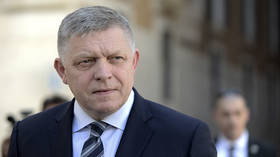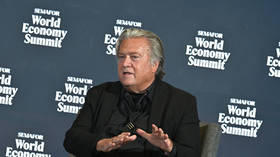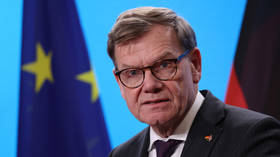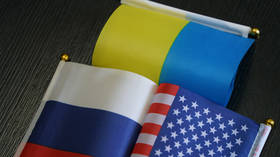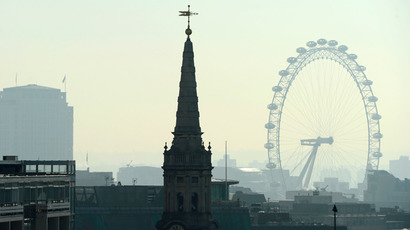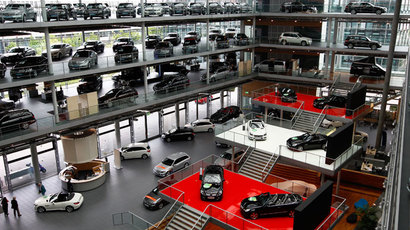Autocracy? Germany’s Merkel fights corruption accusations following massive BMW donation
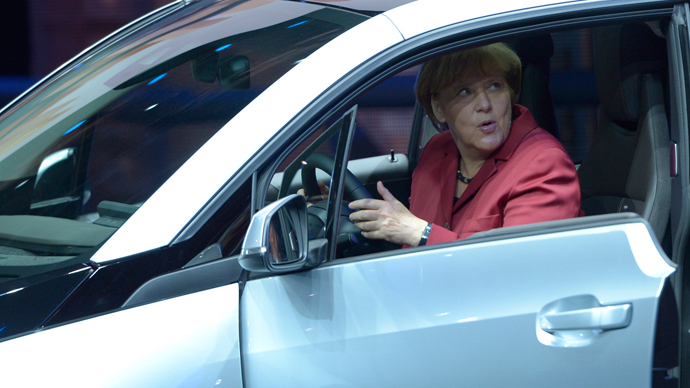
German Chancellor Angela Merkel is under fire for accepting a nearly 700,000-euro donation to her conservative party by owners of popular car maker BMW, so much so that the country’s president is being forced to clamp down on massive political gifts.
The pressure to do so stems from the opposition, as well as
anti-corruption watchdogs like Transparency International.
The organization on Wednesday pressured German President Joachim
Gauck to restrict corporate donations of such size to political
parties.
The Quandt dynasty, which owns 46.7 percent of the BMW auto
concern, was reported on the German parliament’s website to have
made the transaction to Merkel’s Christian Democratic Party in
the first days of October. This was followed by a barrage of
criticism from German opposition parties and NGOs, Germany’s The
Local reports.
The catalyst seemed to be that, just days before the transfer,
Europe’s environment ministers caved in to Berlin’s demands to
cancel an agreement that would limit the country’s car emissions.
According to analysts, manufacturers Daimler and BMW produce cars
that are less fuel-efficient and this poses a challenge to their
meeting the proposed target on capping carbon emissions of 95
grams per km for all their new cars from the year 2020 – a plan
Merkel has just thwarted for the third time – Business Spectator
explains.
By comparison, EU’s more ‘green’ car makers Fiat and Peugeot are
able to fulfill the requirements.
The law would have a negative impact on jobs in the industry, the
Christian Democrats argued. However, this did not save Merkel
from accusations of pandering to the car lobby.
Her CDU party and the Quandt family flatly deny all allegations
of political favors.
"The donations are in no way connected to individual political
decisions,” a party spokesman said on Tuesday.
Although the money gift came two weeks after Merkel’s emerged
victorious in the parliamentary election – and therefore was not
linked to her campaign – opposition parties say the timing of the
donation appeared suspicious.
“This is the most blatant case of purchased policymaking in a
long time… BMW's got Merkel in the bag. No one has done it that
openly before,” Klaus Ernst, an MP for the left Die Linke
party told the Independent of the 690,000-euro gift to the party.

To try and counter the claims that Merkel has been bought by the
car industry, the chancellor’s deputy spokesman, Georg Streiter,
said “of course the government is not open to being
bought.” He explained that the donation was made to the
government – not to the political party. He added that Germany
would continue on a path to car emission figures that would
satisfy the EU and environmental advocates.
But despite BMW and CDU’s denial of any political favors being
made, the opposition and anti-corruption lobbyists continue on
their path.
Transparency International’s Edda Muller told the Mitteldeutsche
Zeitung newspaper on Wednesday that an annual donation limit of
50,000 euro per person should be imposed to curb the influence of
“particularly strong lobby interests.”
The idea was picked up by other such organizations, like
LobbyControl, which agreed that 100,000 euro per year is also
fine.
However, the organization did join the ranks of the accusers.
Their spokeswoman, Christina Deckwirth, was suspicious that the
biggest donation in Germany’s 2013 election year was made only
two weeks after Merkel’s campaign.
“It raises the question whether the Quandt family deliberately
kept its support out of the election campaign,” she told The
Independent.
Juergen Trittin, former co-leader of the Greens, posted his
reaction on Twitter, saying that the Quandt family had "bought
Merkel's climate policy on October 9 for 690,000 euro”,
according to the Business Spectator.
Ulrich Kelber, an environment expert with the Social Democratic
Party, tweeted the view that Merkel’s CDU shamelessly accepted
the money “from the profiteers of Merkel’s resistance to
climate protection measures.”
Left Party co-chairman Bernd Riexinger issued harsh criticism as
well, telling the Passauer Neue Presse newspaper that “the
timing of the donation shows [that] here not just a party has
been bought, but a law.”


